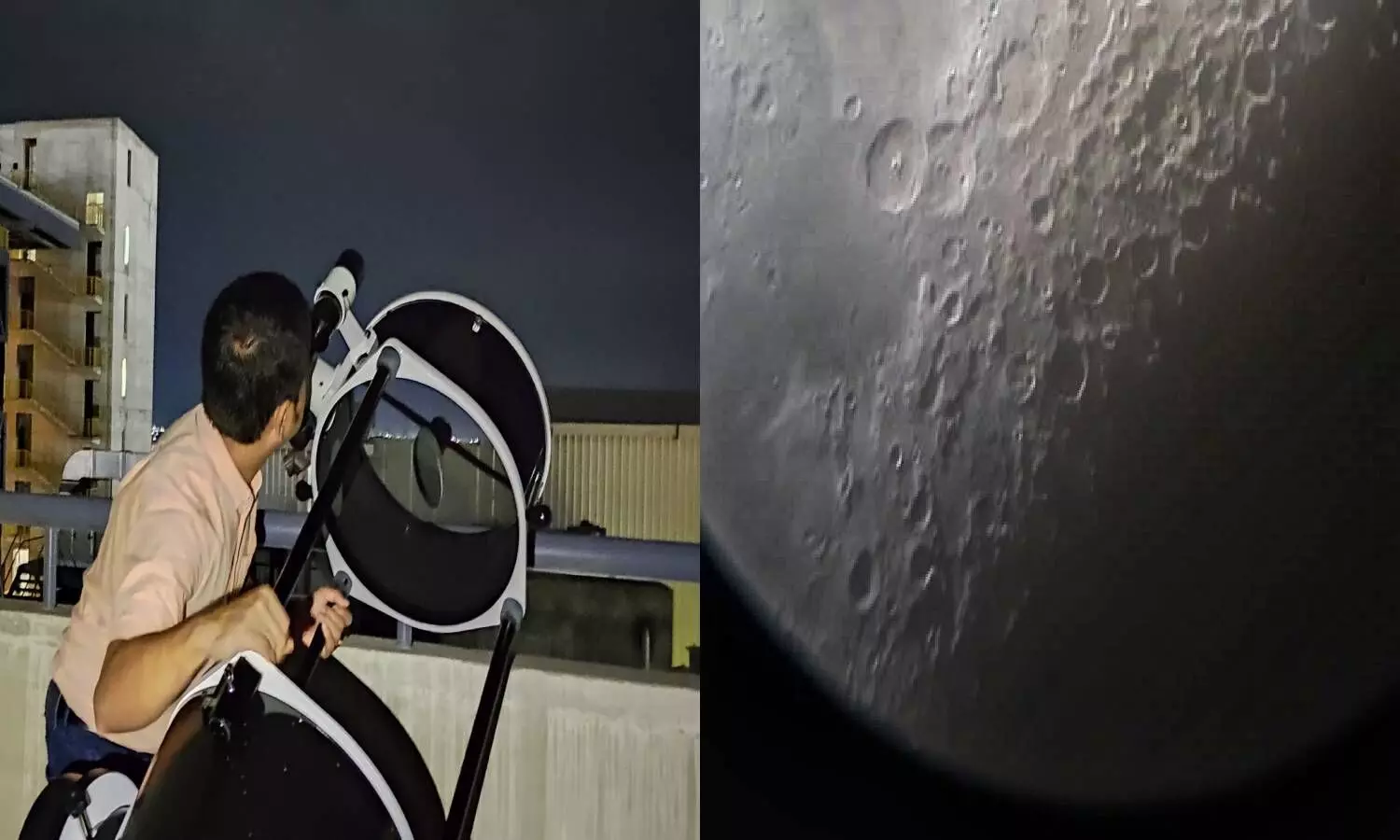Large telescope set up at IIT Hyderabad; astronomical research to receive boost
A large telescope has been established in the Indian Institute of Technology (IIT), Hyderabad for night sky observational training programs and other research activities.
By Newsmeter Network
Hyderabad: A large telescope has been established in the Indian Institute of Technology (IIT), Hyderabad for night sky observational training programs and other research activities.
The telescope is equipped with a huge mirror with an optical diameter of 355 mm (second largest among IITs after IIT Kanpur) with a focal length of 1650 mm. Such a large mirror along with a Crayford focuser and elegant truss tube design will enable observation of the deep sky and faint objects which were never possible to detect with a small telescope.
Small craters on the lunar surface, rings of Saturn are some of the small features that can be resolved with the telescope. An advanced digital camera will be used to record images and transient astronomical phenomena like meteor showers. Although the telescope would primarily aim for the outreach and night sky observational training programs, it has the capabilities of delivering a research-level performance which will be explored subsequently.
With this Telescope, IITH will be a part of the Indian astronomical community hosting a large telescope for an effective outreach with high-quality deliverance. The project is funded by Prof B S Murty, the Director, IIT Hyderabad, and managed by Dr. Mayukh Pahari, Department of Physics. The facility was inaugurated by Padmashri and Padmabhushan, Dr. B N Suresh, Chancellor and the Founding Director of the Indian Institute of Space Science and Technology, Thiruvananthapuram.
"The enthusiasm and the curiosity of young students about objects in the sky are limitless. With this large telescope, we will provide them an opportunity to study celestial objects in greater detail than other small telescopes conventionally used for outreach programs. Activities like stargazing training programs, observing astronomical transients, working with celestial images will enhance their knowledge and add to their sense of human connection with space. We would also ensure that students from schools and various colleges in and around Hyderabad also get the advantage of this large telescope through various programs organized by the Astronomy Club of IITH," Prof Murty said.
Citing the importance of such facilities, Dr. Mayukh Pahari, Assistant Professor, Department of Physics said: "Unlike other observatories designed for the outreach programme, our facility will provide a chance to work with high-quality astronomical images from deep-sky objects as well as transient events so that school/ college students may have opportunities to contribute to the astronomical research."